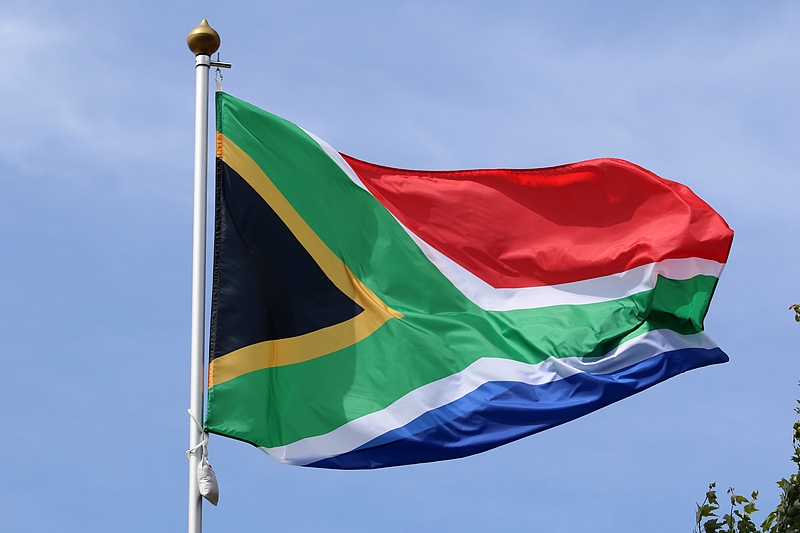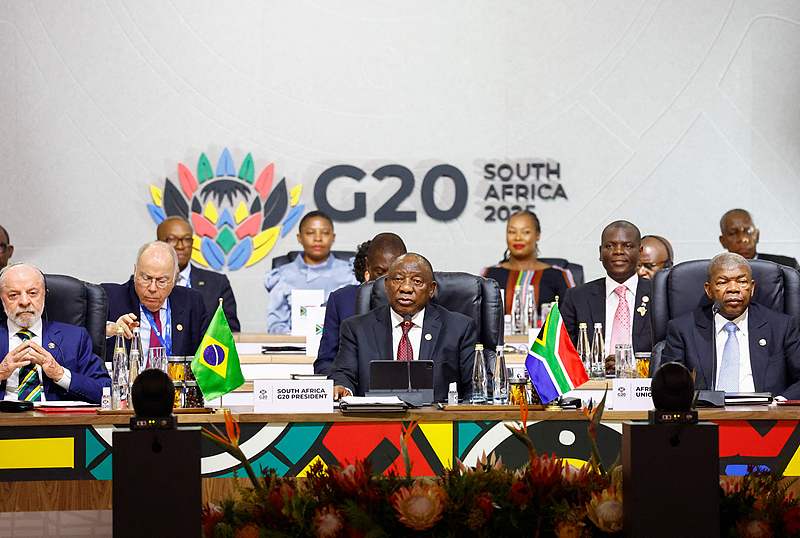
South Africa’s unity talks face crisis before they even begin
South Africa’s first national dialogue convention under its coalition government will open at the University of South Africa’s Pretoria campus on Friday against a cloud of budget controversy and public mistrust.
The convention is the first stage of a process that the presidency says will take the country through community-level discussions, provincial gatherings, and sector dialogues.
The aim, according to President Cyril Ramaphosa, is to “rebuild trust and forge a shared vision for the nation.” But with major players already pulling out, the process is under strain before it has even begun.
At the helm of the dialogue is the Eminent Persons Group (EPG), a panel of respected public figures tasked with ensuring the integrity of the process.
The president says the EPG will play a critical role in mediating disagreements and ensuring that the outcomes are shaped by the voices of citizens rather than party agendas.
Although the EPG has said it is ready to play its part, the process towards the national convention has been marred with controversy, the first being the staggering proposed costs.
The estimated implementation cost is approximately $39 million, prompting debate about its fiscal priority. Critics and some opposition parties have expressed their disapproval of the proposed budget.
South Africa’s biggest trade union federation, COSATU, called for a review.
“Whilst COSATU appreciates that this is merely the awkward ponderings of a few government officials and other persons, it is rash and grossly insensitive to the frustrations of society, in particular the working class, who have borne the brunt of brutal austerity budget cuts to frontline services, in particular, health, education, police, home affairs amongst others; and who have been expected to tighten their belts whilst battling the rising costs of living in a fragile economy saddled with unbearable levels of unemployment, poverty and inequality,” COSATU said in a statement.
One of the members of the country’s Government of National Unity, the Inkatha Freedom Party (IFP), says that although it supports and welcomes the national dialogue, it strongly opposes the proposed budget.
South Africa’s government poured water on the reports about the costs, saying no final decision has been made.
In a statement released on Sunday, the presidency said the National Economic Development and Leadership Council and the Presidency for Secretariat support, Communications, and Logistics are co-funding the convention.
“As a response to the call for collaboration with other stakeholders to reduce the costs of the National Dialogue, UNISA has offered to host the first National Convention and provide associated goods and services free of charge,” the statement said.
Political tensions have been most visible with the withdrawal of the Democratic Alliance (DA), the African National Congress’s (ANC) largest coalition partner, from the national dialogue.
DA leader John Steenhuisen announced that his party would not take part, accusing the ANC of turning the dialogue into a party-controlled exercise that wastes public money.
Relations between the two parties have been strained for months. In late June, President Ramaphosa fired DA Deputy Trade Minister Andrew Whitfield for undertaking an unauthorised trip to the U.S., prompting a furious backlash from the DA.
The withdrawal of several of the country’s most prominent legacy foundations, including those of Thabo Mbeki, Steve Biko, Desmond and Leah Tutu, Chief Albert Luthuli, Oliver and Adelaide Tambo, and FW de Klerk from the preparatory task team also weakened support for the dialogue event. In a joint statement, they accused the government of rushing the process and steering the dialogue away from its intended citizen-led model.
“This is due to our belief that core principles meant to underpin the whole National Dialogue have been violated in the rush to host a gathering on 15 August. We do so not out of apathy or disengagement, but because we remain committed to the belief that all aspects of the National Dialogue must be credible, principled, and anchored in public trust.”
In response, Ramaphosa thanked the legacy foundations for their contributions to the process and said the national convention would continue as scheduled.
All of this unfolds against a grim national backdrop. The country is dealing with the 30 percent U.S. tariff, which analysts believe could lead to severe economic consequences, high unemployment rates, and persistent allegations of fraud and corruption involving senior government officials. On the streets, the mood is a mixture of frustration and guarded hope.
“The national dialogue is a very important session to have as a country, and I believe that it’s there to yield better results because currently, people are just moving around without knowing what is on the agenda. But I feel like with the national dialogue coming up, we’ll be able to know what it is that needs to be done, and I’m even impressed because now there are just a lot of people that are from different sectors that are involved in the dialogue,” said Thabo Kizito in Johannesburg.
Some people believe there is no point in the national dialogue, as they believe most of the issues are constantly being discussed.
Despite the political turbulence, several parties and organisations have thrown their weight behind the process. The GOOD Party, Al Jama-ah, and a range of smaller community-based groups have confirmed their participation, describing the dialogue as a rare opportunity to reset the tone of South African politics.
Whether the Pretoria Convention will lead to any change will be determined in the months ahead.






